Start your novel
Get started for free with Milanote's easy-to-use creative writing templates.
Start your novelSign up for free with no time limit

Follow this step-by-step guide to building a strong foundation for your novel in Milanote, a free tool used by top creatives.

Writing a novel is the most amazing adventure you may ever undertake. It's a baring of the soul, no matter how fictional. It requires dedication, attention to detail, imagination, and a burning desire to tell a story.
When you sit down to begin writing a book, you're taking the first step on a journey into the unknown. Fortunately, many novelists have already traveled the path before you, so you don't have to go into that wilderness without a map.
This guide gives you tips, tricks, and tools to lay the foundation for writing your novel. You will learn five critical questions to ask yourself about your novel so that you can begin formulating a vision for it. This is the first step toward writing your novel, so let's settle in and get started!
The first question is "What is this novel about?" At this stage, you don't want to dive too deep. State your answer as a "What if…" question, and limit yourself to twenty words or less. These limitations help to refine your concept.
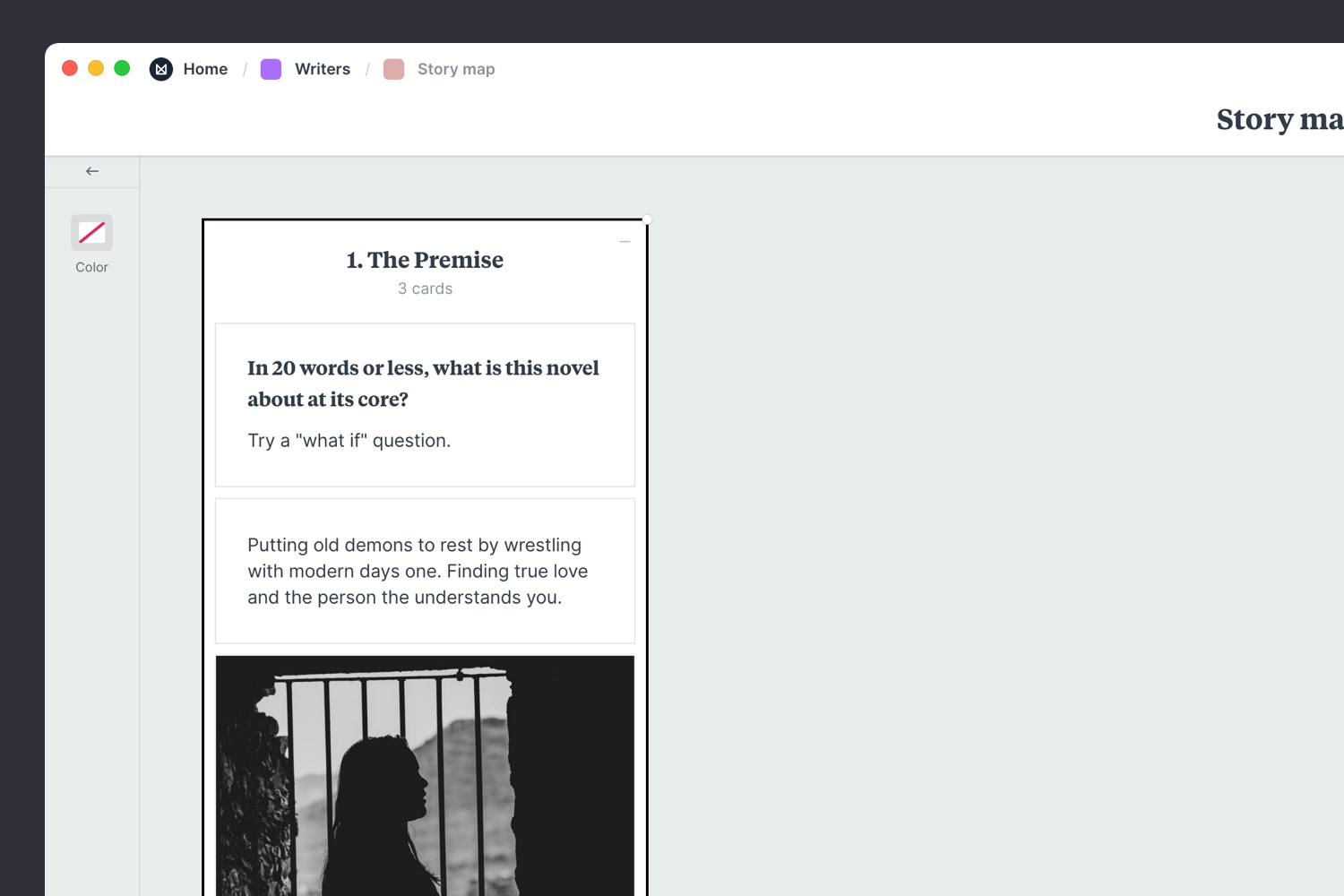
Create a new board to plan your story.
Drag a board out from the toolbar. Give it a name, then double click to open it.
Choose the built-in Story Map template.
Each new board gives you the option to start with a beautiful template. Find the Creative Brief template, then choose "Use this template".
Add a note to describe the premise.
Start typing then use the formatting tools in the left hand toolbar.
The next question is "What are the stakes?" If your heroes fail, what will happen? What do the world and your characters have to lose if this story ends in tragedy?

Add a note to describe the stakes.
Start typing then use the formatting tools in the left-hand toolbar.
After the stakes, you want to define the core conflict. A great way to express this is with an "X versus Y" statement, where X is your protagonist and Y is the force working against your protagonist, who or what wants to keep the protagonist from achieving success? Is it an individual, a group, a situation, an internal struggle, or something else?
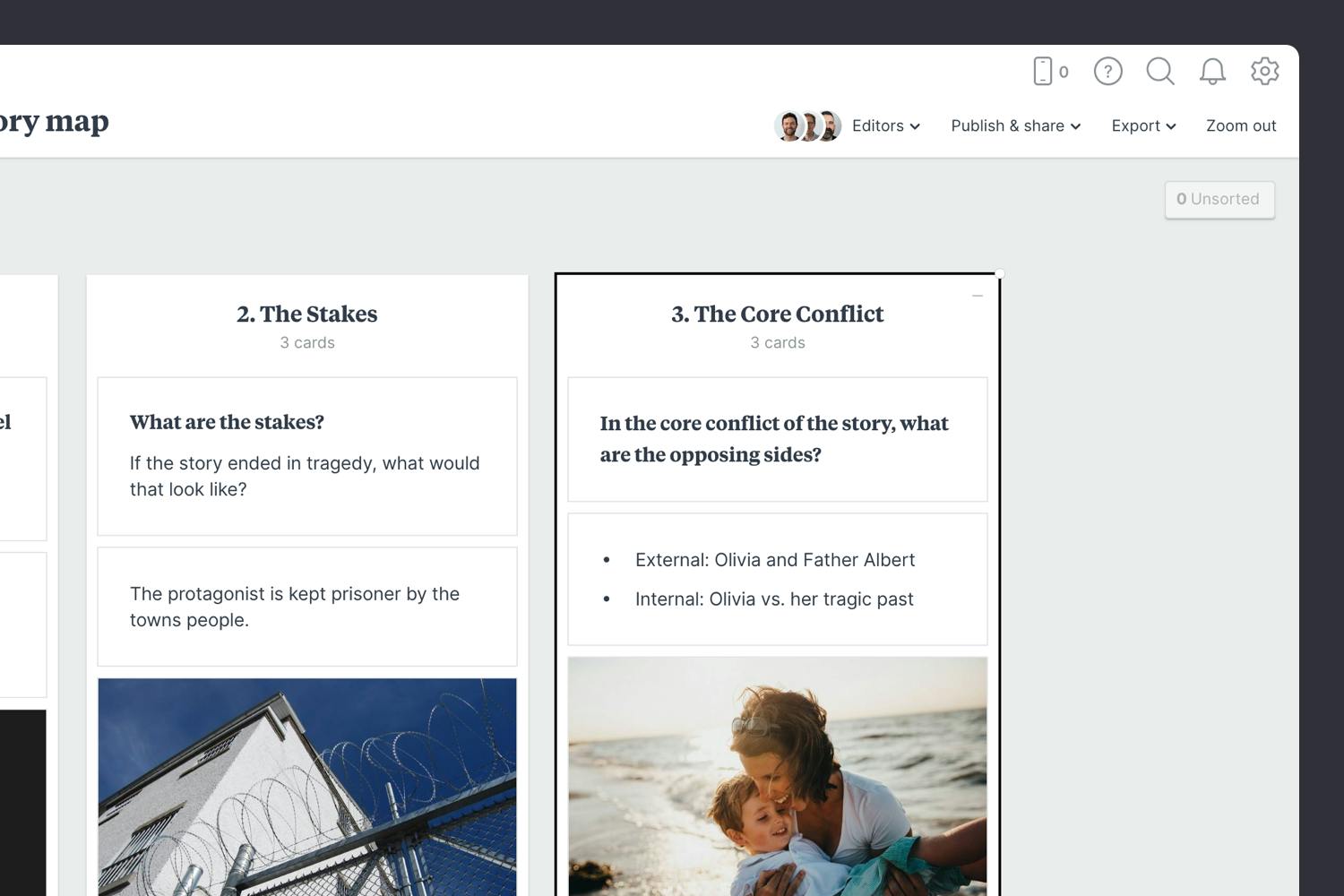
Add a note to describe the core conflict.
Start typing then use the formatting tools in the left-hand toolbar.
Eventually, the Core Conflict must be resolved, but how? When answering this next question, consider whether the protagonist fails or the story ends in success. Describe, in one sentence, how the Core Conflict is resolved.
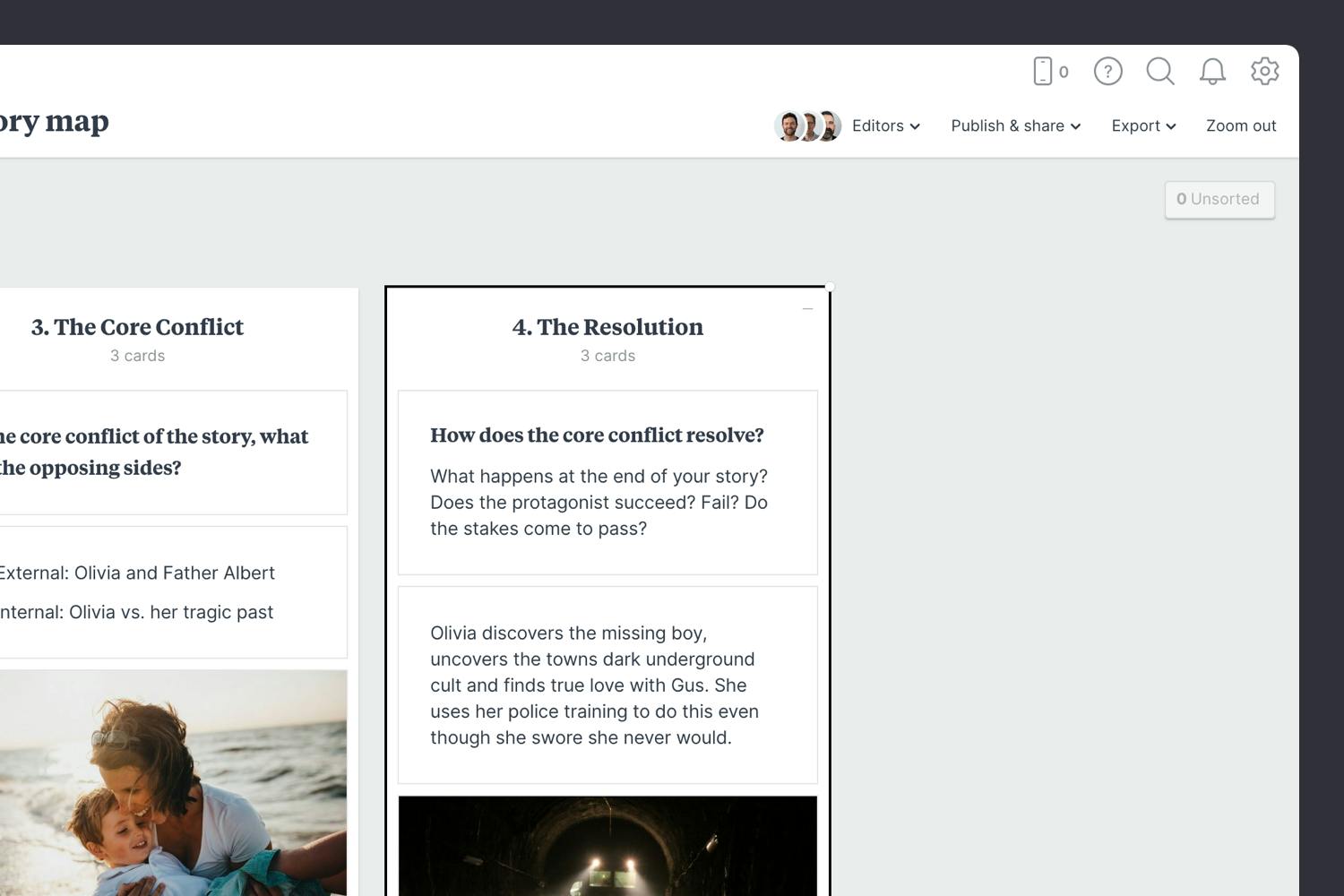
Add a note to describe how the conflict resolves.
Start typing then use the formatting tools in the left-hand toolbar.
Conflict creates change, whether in the protagonist or the world itself. A novel is the story of change through conflict. In your novel, what needs to change? We call this The Lesson to represent that someone or something is facing a trial that will end in transformation. What is the transformation that occurs through the course of your novel and comes to fruition through the application of the Core Conflict?
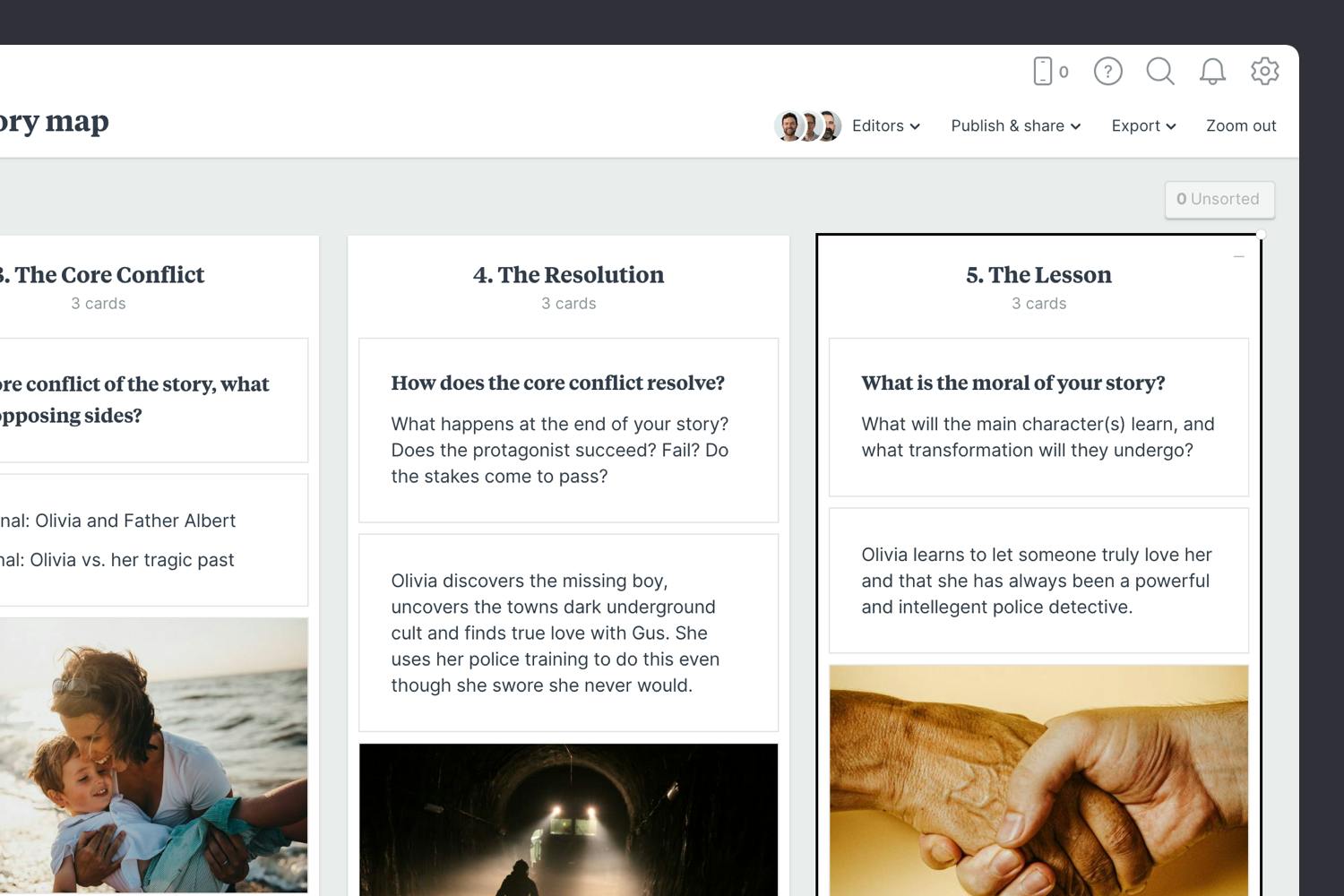
Add a note to describe the lesson.
Start typing then use the formatting tools in the left hand toolbar.
At this point, you are almost done laying the foundation for your novel. The final set of questions help you to define your novel on a more practical level. Documenting your word-count goal, your novel's location and time period, and the various elements that feed into your genre will further solidify your vision for the novel and put finishing touches to the foundation upon which you build the grand and elaborate structure that will be your novel.
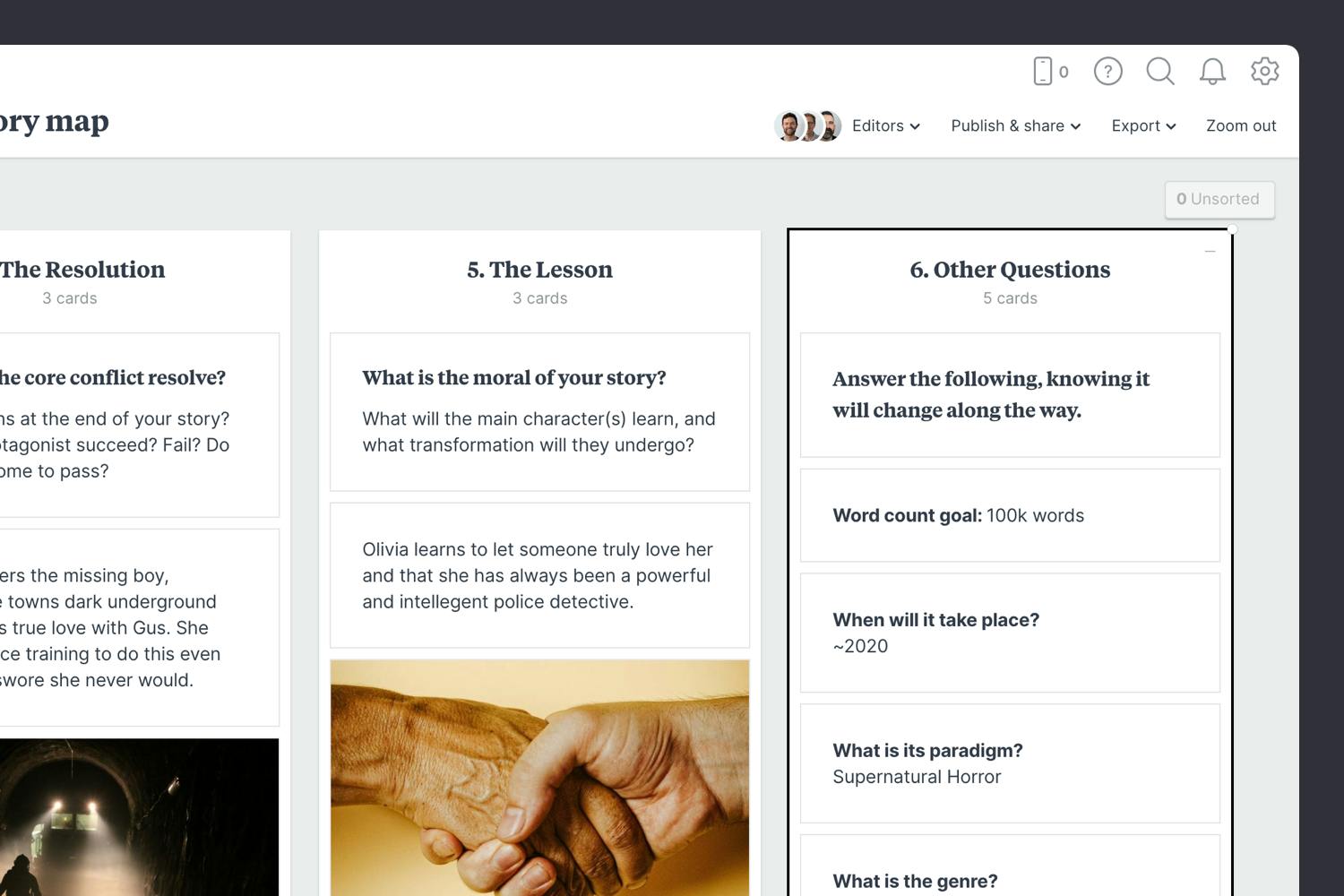
If you answered all these questions, then you're well on your way to a novel. Remember that you can do this process again with other ideas, especially if you're unsure whether you really love that first one. I work through ideas until I feel that spark that happens when I've hit on the right one. Use the template below to start mapping out your novel or read our full guide on how to plan a novel.
